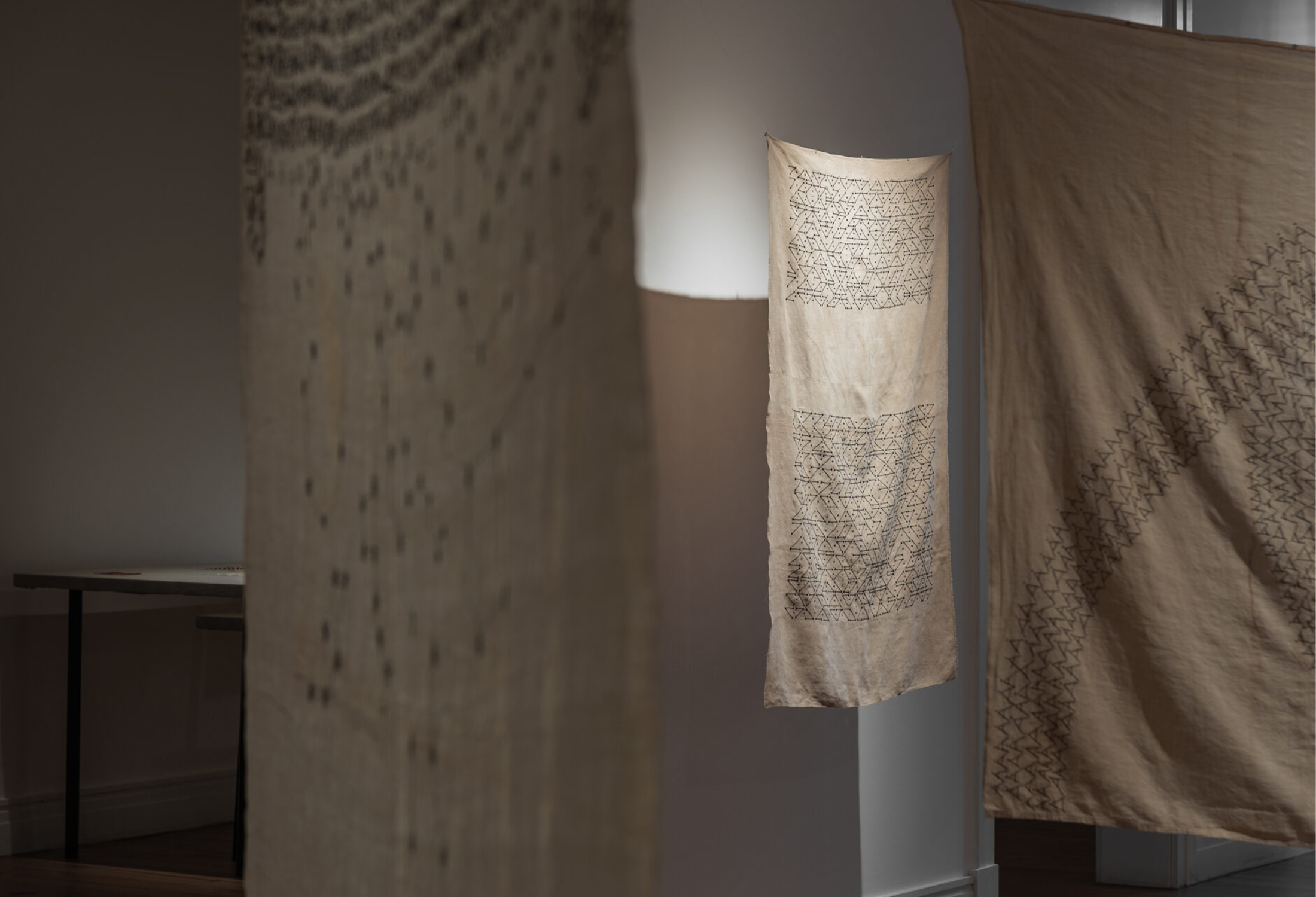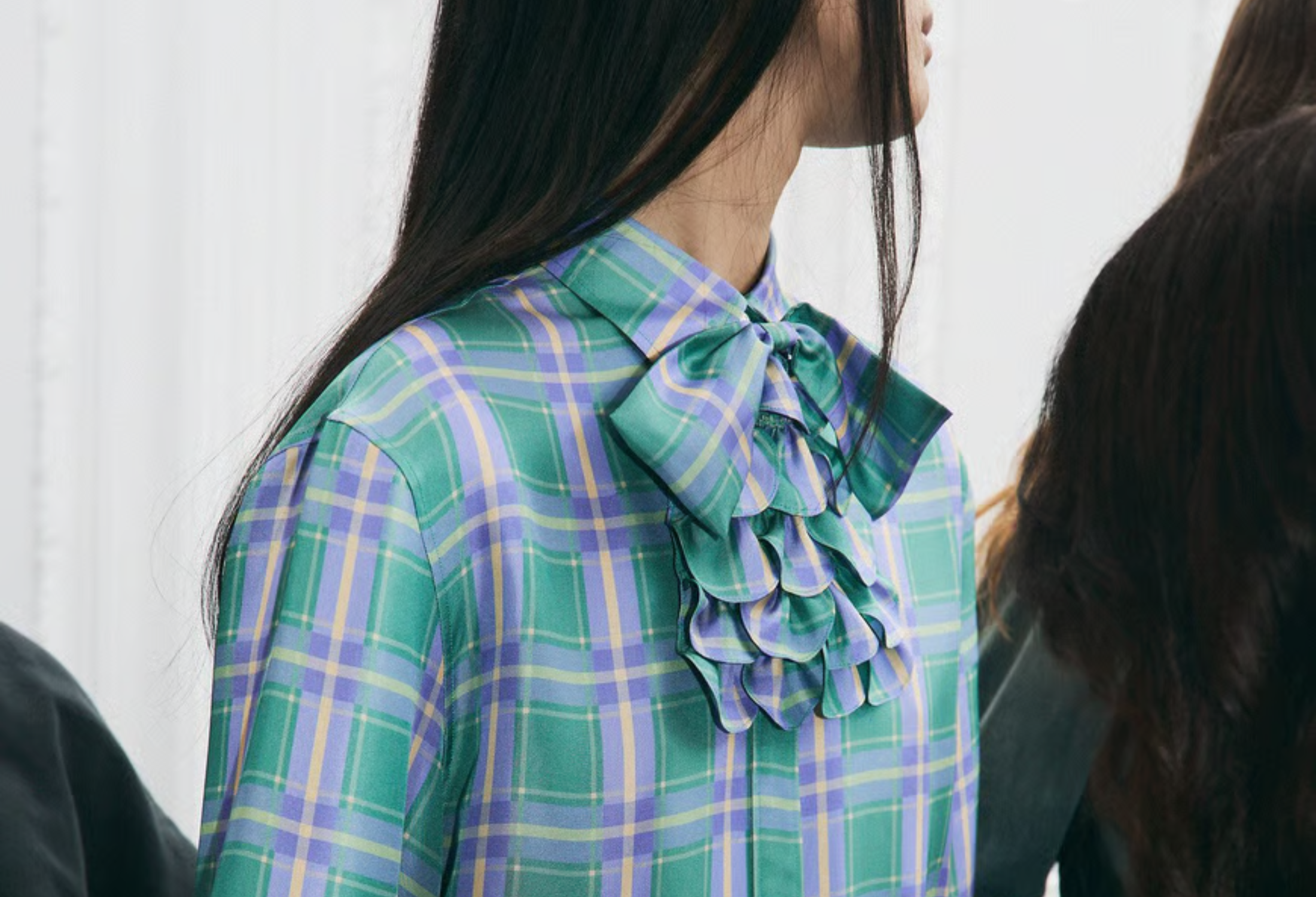Innovation and fashion I: fabrics

Staying ahead of international luxury fashion not only requires aesthetics and brand image. Our favourite brands actively contribute to the world of technological innovation, investing time and resources in the application of new technologies to fabrics. Fabrics have gone from being mere constituents of clothing to active participants in its functionality and sustainability.
Today we review some of the innovative fabrics of our brands, from Prada's sustainability to Stone Island's thermo-reactive materials.
Prada's Re-Nylon
Since the 80s, nylon has been inseparably linked to Prada. From Miuccia's first collections for the brand, nylon became a new material for the manufacture of bags and accessories that translated a sense of the future to the retro uniformed wardrobe of the brand. In 2020, Prada relaunched one of its most recognized fibres with a new name: the Re-Nylon line. This range of pieces, from Prada hats to Re-Nylon bags, is made from ECONYL© yarn, which reduces the impact of climate change by up to 90% compared to new nylon thread.
This new fabric is made through an agglomeration of waste extracted from the sea and rivers, as well as old clothing, converted into a clean fibre yarn. Nylon is, as the brand comments on its website, a thread with infinite recovery potential. As the first major luxury brand to sign a green agreement in 2019, through the Prada Group, the brand continues to lead at the international level much more than just in fashion. Find here on our website the Re-Nylon pieces that contribute to a much more conscious fashion.
Stone Island Clothing: Heat Reactive Fabrics
Also in 2020, the leader in the luxury sportswear sector, Stone Island, launched one of its most daring bets to date: fabrics that react to temperature by changing color. The launch was an absolute success. Its thermo-reactive fibre has micro-pigments similar to mirrors that alter their position with external temperature. With the increase in temperature, the pigments change their angle and lighten their tonality. On returning to lower temperatures, the garment darkens again. This is one of the various features that has won over many admirers of the brand.
Stone Island is an Italian brand launched in the 80s that quickly conquered the scene of global sports enthusiasts. So much so, that its popularity in England has led the public to believe in its origin in the area. While the most fanatical sports culture had a peak in 80s and 90s England, it was its sporty appearance and the compass symbol (or Compass Patch) that made it a recognizable language among football fans in particular. Its symbolism was like a way of communicating belonging to a group with similar values, and the quality of its pieces still keeps it as a reference in the sector. You can find Stone Island clothing, such as Stone Island sweatshirts and jackets, here.
Chloé's Organicism: Gabriela Hearst's Legacy
Since her arrival at Chloé in 2020, Gabriela Hearst has led the green renewal of Chloé that we know today. In her negotiation with the brand managers, she showed confidence in herself by bringing proposals and a market study done by herself. To her surprise, the brand was already looking for a creative director who would drive its sustainability initiatives.
In addition to her talent for creating it-bags and other pieces, her greatest progress has been the complete elimination of non-organic fabrics within the Chloé space. The creator has elevated the free and cosy spirit of the brand to a new chapter in several directions, contributing her own personal concerns and values. Finally, her work made Chloé the first luxury brand to acquire the B-Corp seal, an extremely difficult European sustainability standard to obtain.
In addition to Chloé clothing new general production lines, available throughout the range at OTTODISANPIETRO, we highlight some of her additional initiatives. The Uruguayan designer launched the Nama sneakers for Chloé in 2022. This line is made with over 40% recycled materials, with an extremely comfortable and modern look. Their women's jeans range, Chloé Circular Denim Project, aims to reduce the environmental impact of a modern wardrobe staple. The materials in this range are mostly reused, new elements are obtained in a conscious and respectful way, and the durability of these pieces is designed to be long-lasting.
Amid fabrics and revolutionary spirits, fashion remains a global channel for innovation and communication. As one of the industries with the greatest global presence and impact, clothing has the opportunity to demonstrate consciousness and inspire other sectors to update with the times. In the next instalment, we will review some of the corporate innovations in the industry at hand.
You can find your favourite luxury fashion brands here.


